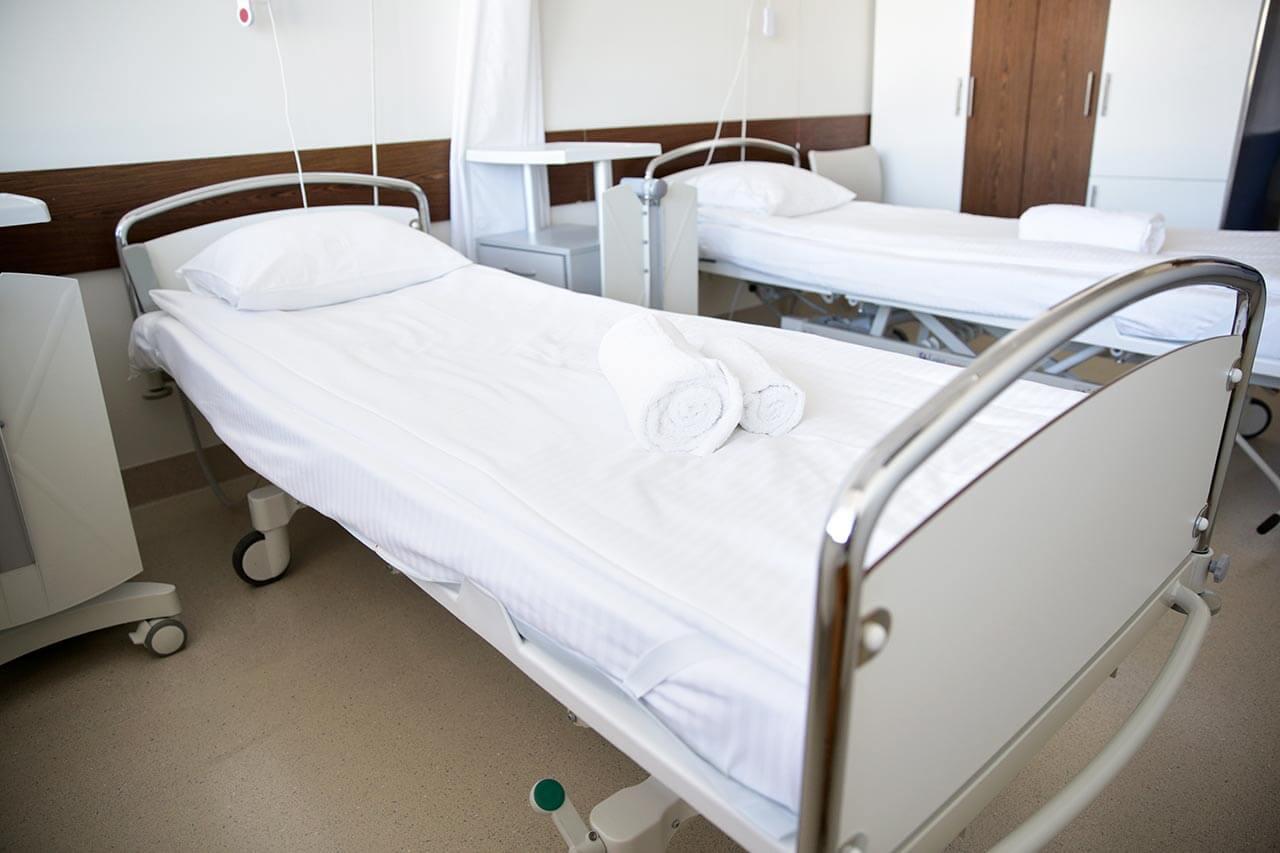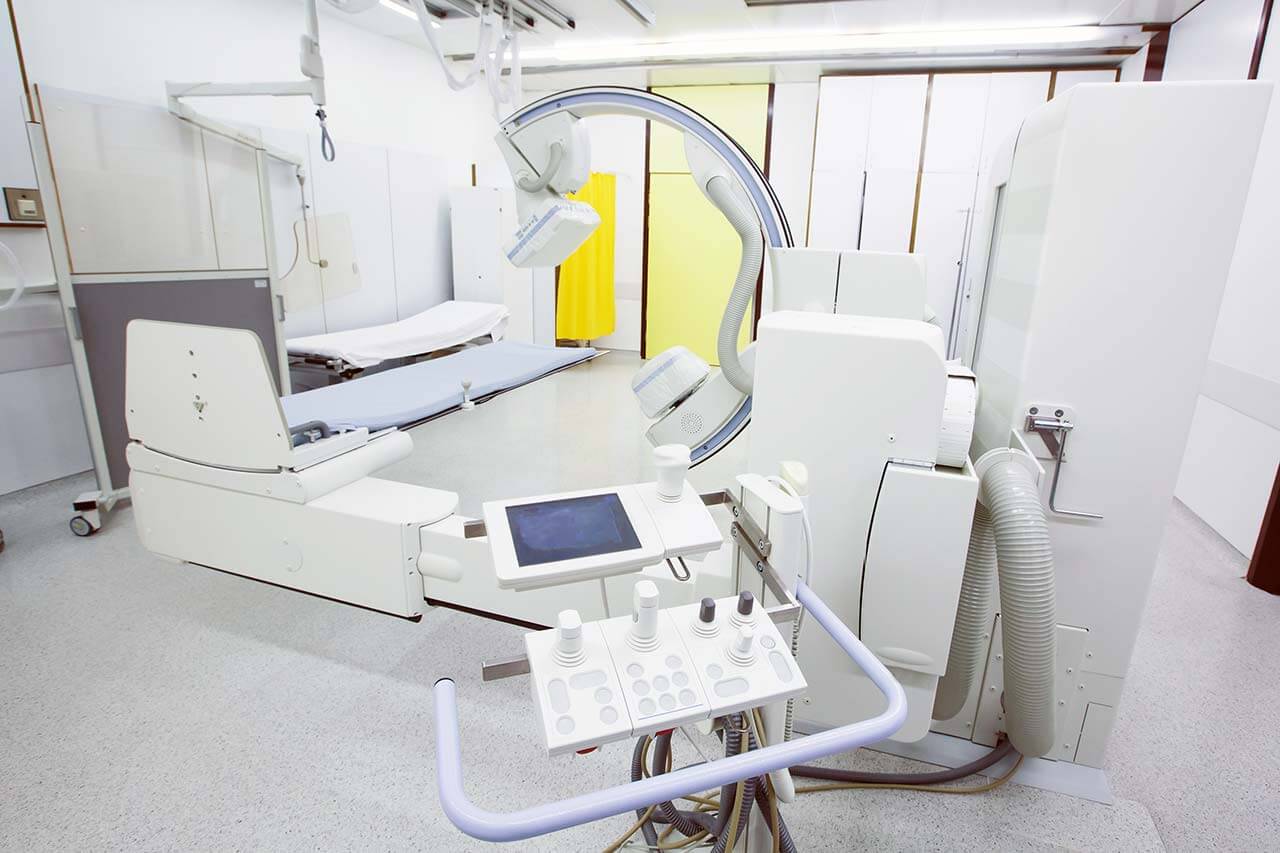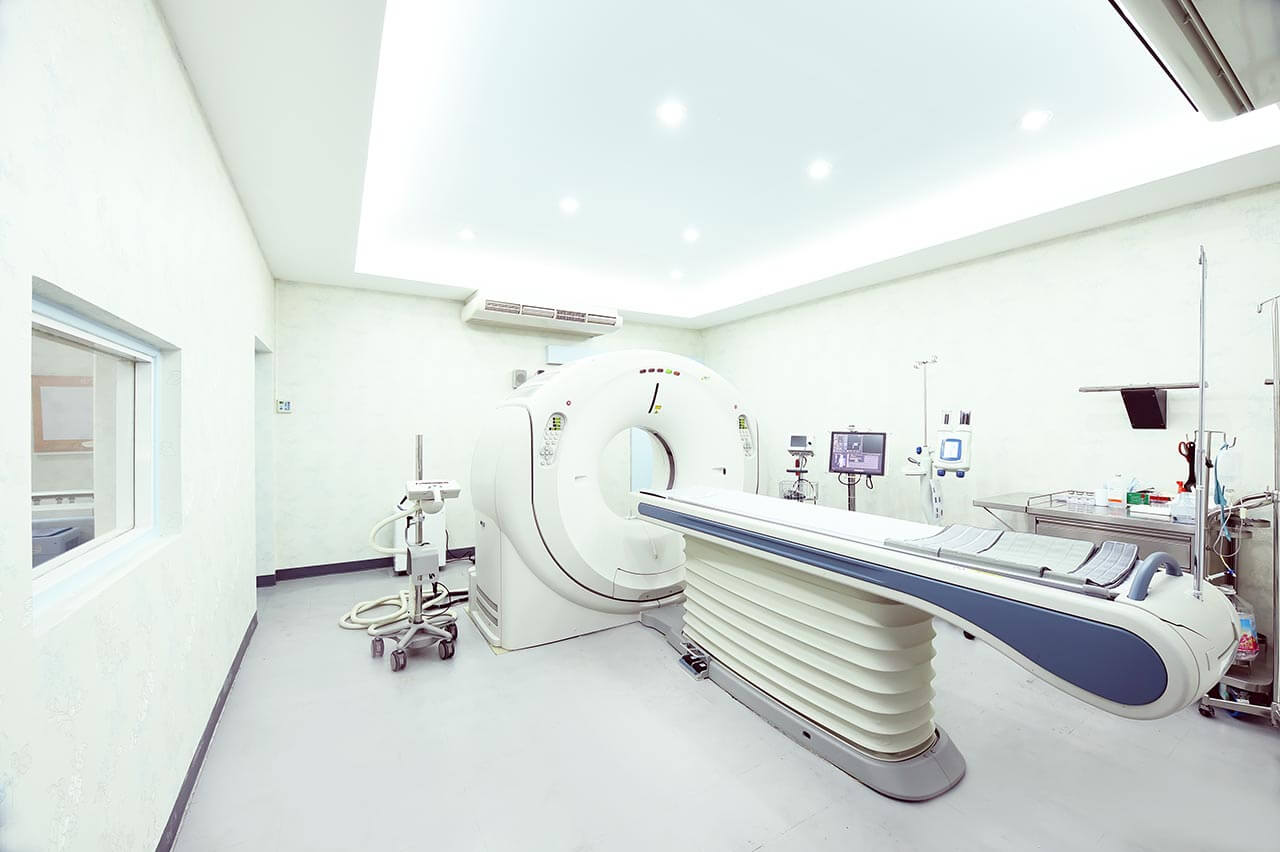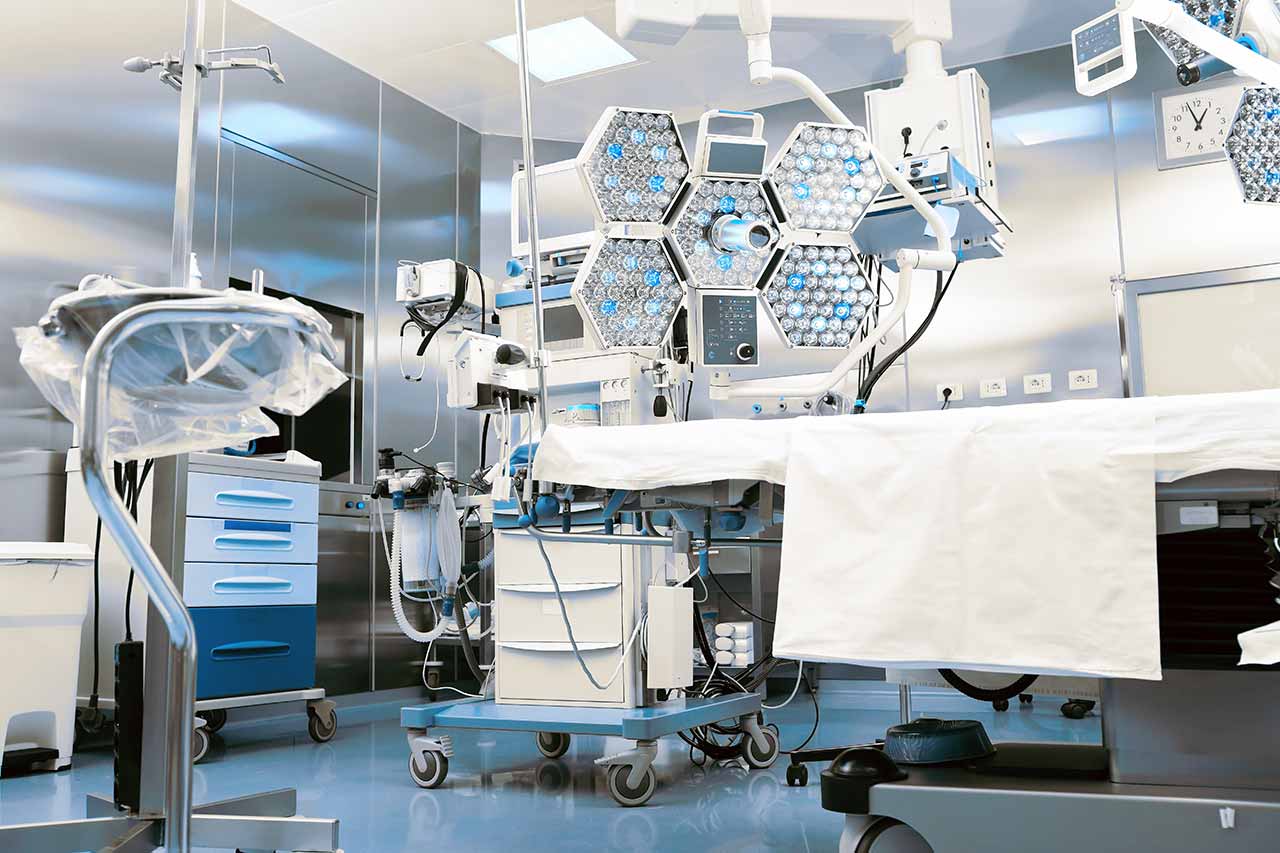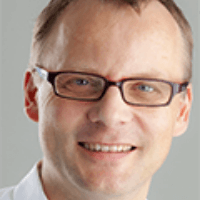
The program includes:
- Initial presentation in the clinic
- case history collection
- general clinical examination
- laboratory tests:
- complete blood count
- general urine analysis
- biochemical analysis of blood
- TSH-basal, fT3, fT4
- tumor markers
- indicators of inflammation
- indicators blood coagulation
- ultrasound
- CT/MRI scanners
- endosonography/ cholangigraphy
- gastroscopy with biopsy and ercp or pops
- symptomatic treatment
- cost of essential medicines
- nursing services
- stay in the hospital with full board
- full hospital accommodation
- elaboration further recommendations
Required documents
- Medical records
- MRI/CT scan (not older than 3 months)
- Biopsy results (if available)
Service
You may also book:
 BookingHealth Price from:
BookingHealth Price from:
About the department
The Department of Gastroenterology and Hepatology at the University Hospital Essen offers the full range of diagnostic and therapeutic services for patients with diseases of the gastrointestinal tract and liver. Special attention is paid to the treatment of patients with chronic liver diseases, including the monitoring before and after transplantation, diagnostics and treatment of gastrointestinal and liver tumors, chronic inflammatory bowel diseases, and HIV infection. Also, all the modern endoscopic procedures are available in the department. In order to ensure the highest level of medical services, the department cooperates closely with the specialists from other departments of the hospital and the West German Center for Gastrointestinal Diseases. The Chief Physician of the department is Prof. Dr. med. Heiner Wedemeyer.
The central Endoscopy Unit conducts all the diagnostic and interventional functional diagnostic and therapeutic procedures, including such interventions as cholangioscopy, minilaparoscopy, duplex and contrast-enhanced ultrasound scanning and ultrasound-guided fine needle biopsy. The department's specialists perform more than 10,000 endoscopic examinations every year.
A number of prestigious certificates testifies to the outstanding quality of medical care in the department, for example, the certification of the German Cancer Society, DIN EN ISO 9001 certification and others.
The service range of the department includes:
- Endoscopic diagnostic and therapeutic procedures
- Esophagogastroduodenoscopy (gastroscopy) and colonoscopy
- High definition video endoscopy
- ZOOM endoscopy
- Chromoendoscopy
- Endoscopic hemostasis techniques (injections, use of clips)
- Polyp removal and mucosectomy
- Stent implantation into the esophagus, small and large intestine
- Bougienage and balloon dilatation of stenoses
- Endoscopic treatment of Barrett's esophagus and early stage cancer
- Endoscopic therapy of diverticles
- Ligature (for example, in diseases of the esophagus, hemorrhoids)
- Percutaneous endoscopic gastrostomy and percutaneous endoscopic jejunostomy
- Endoscopic imaging of the bile ducts and pancreatic ducts (endoscopic retrograde cholangiopancreatography)
- Removal of bile duct stones
- Electrohydraulic lithotripsy
- Laser lithotripsy
- Bougienage, balloon dilatation and stent implantation in benign and malignant stenoses of the bile ducts and pancreatic ducts
- Cholangioscopy
- Photodynamic therapy in bile duct cancer
- Intraductal ultrasonography
- Percutaneous transhepatic drainage of the gallbladder, in the case when it is impossible to provide endoscopic access to the bile ducts
- Mini-laparoscopy
- Capsule endoscopy
- Contrast-enhanced sonography and interventional sonography (puncture, drainage and sclerotherapy of the liver cysts)
- Endosonography
- Esophagogastroduodenoscopy (gastroscopy) and colonoscopy
- Functional diagnostics
- Esophageal diseases (achalasia, reflux disease, etc.)
- Esophageal manometry
- Long-term esophageal pH monitoring
- Barium swallow test
- Stomach diseases (gastroparesis, infection with Helicobacter pylori, etc.)
- Gastric emptying scintigraphy
- 13C-urea breath test
- Small intestine diseases (lactose intolerance, malabsorption, etc.)
- Lactulose hydrogen breath test
- Fructose hydrogen breath test
- Glucose hydrogen breath test
- Xylose hydrogen breath test
- Pancreas function tests
- Colon diseases (irritable bowel syndrome, fecal incontinence, etc.)
- Hinton test (in collaboration with the Department of Radiology)
- Defecography (in collaboration with the Department of Radiology)
- Functional MRI (in collaboration with the Department of Radiology)
- Esophageal diseases (achalasia, reflux disease, etc.)
- Other diagnostic and therapeutic options
Curriculum vitae
Since February 2018, Heiner Wedemeyer is the Professor and Chairmen of the Department of Gastroenterology and Hepatology at the University Hospital Essen.
He received his Medical Degree at the University of Göttingen in 1996 and subsequently started his training in Internal Medicine at the Hannover Medical School in Germany. From 1998 to 2000, he was a Research Fellow in Immunology at the Section for Liver Diseases, National Institutes of Health, Bethesda, USA. Since 2001, he completed his training in Internal Medicine and Gastroenterology at the Hannover Medical School, where he became the Professor of Medicine (2011).
Prof. Wedemeyer has been involved in the scientific coordination of the German Network of Competence on Viral Hepatitis (Hep-Net) and the German Liver Foundation for more than 15 years. Currently, he serves as the Managing Director of the German Hepatitis C-Registry. Heiner Wedemeyer is Member of several scientific organizations and was Secretary General of the European Association for the Study of the Liver (from 2009 to 2011).
Prof. Wedemeyer has a long-term research interest in liver diseases with a main focus on viral hepatitis, liver transplantation and hepatocellular carcinoma. He has been a principal investigator in numerous clinical trials, focusing on antiviral therapy and immunotherapy of viral hepatitis B, C, D and E. He has authored over 325 original articles; his current Hirsch-Index is 80 (Google scholar; January 2018) and his work has been quoted more than 28,000 times.
Heiner Wedemeyer has received numerous awards, including the Hans Popper Award of the International Association for the Study of the Liver (2002), the Innovation Award of the German Medical Faculties (2011) and the Rudolph Schoen Award (2011). His research has been funded by the German Research Foundation, the German Ministry of Research and Education, the European Union, the European Association for the Study of the Liver and the Bill and Melinda Gates Foundation.
Photo of the doctor: (c) Universitätsklinikum Essen
About hospital
According to the authoritative Focus magazine the University Hospital Essen ranks among the top German hospitals!
With 27 specialized departments and 24 institutes, the hospital in Germany is a maximum care medical facility. The hospital has 1,300 beds for inpatient treatment. A highly qualified medical team of more than 6,000 employees takes care of the health of patients. All the specialists give preference to an interdisciplinary medical care, which guarantees a comprehensive treatment taking into account the smallest aspects of a particular pathology. The hospital annually diagnoses and treats more than 50,000 inpatients and about 195,000 outpatients, which testifies to the prestige of the medical institution and the highest quality of treatment in Germany.
The hospital presents all the modern medical fields. Nevertheless, special attention should be given to the following major fields of specialization as oncology, transplantology and cardiology, as well as research activities in the field of immunology, infectology and translational examinations of pathologies of the nervous system and behavioral disorders.
Established on the basis of the standard American model of Comprehensive Cancer Centers, the West German Cancer Center (WTZ) in Essen was recognized as the best medical facility of this kind in Germany in 2009. Nowadays, the center holds leading positions both on the national and international medical markets. The basis of its successful clinical practice is the use of very latest treatment methods and an interdisciplinary approach to each clinical case. The West German Organ Transplant Centre (WZO) is also recognized as one of the best in the country and one of the few in Germany, which specializes in the transplantation of all vital organs, such as kidney, liver, pancreas, heart and lungs. Special attention is paid to kidney and liver transplantation.
The hospital in Germany is proud of its high-tech medical equipment, experienced and competent staff, productive research activities, which allow to guarantee the accurate diagnostics and effective treatment, including rare and very complex clinical cases for every patient. Consequently, the hospital is considered a perfect embodiment of high-quality treatment in Germany.
Photo: (c) depositphotos
Accommodation in hospital
Patients rooms
The patients of the University Hospital Essen live in comfortable rooms designed in bright colors. The standard room furnishing includes an automatically adjustable bed, a bedside table, a personal wardrobe, a personal call button with a built-in light panel, a telephone, a TV and a radio. The Internet access is available at an additional cost.
Meals and Menus
The patients of the hospital are offered a daily choice of three menus. The patients are also offered alternative types of menus, if their religion requires the exclusion of certain foods. If you follow a certain diet or suffer from food intolerance, you will be provided with a menu of your choice by discussing it with your attending physician in advance. The hospital also houses a bistro and a cafe, where one can have a tasty snack, enjoy hot and cold drinks.
Further details
Standard rooms include:
Accompanying person
There are a few types of hotels for the accompanying persons, who want to stay near the hospital. The hotel of the Essen University Hospital offers apartments on the first floor of the nursing high-rise building. The DRK nursing also offers single and double rooms.
The hotel in Grugapark is available for the parents, whose children stay in the hospital. The parents of children with cancer can also stay here. Moreover, The Department of Pediatrics offers its rooms for parents.
